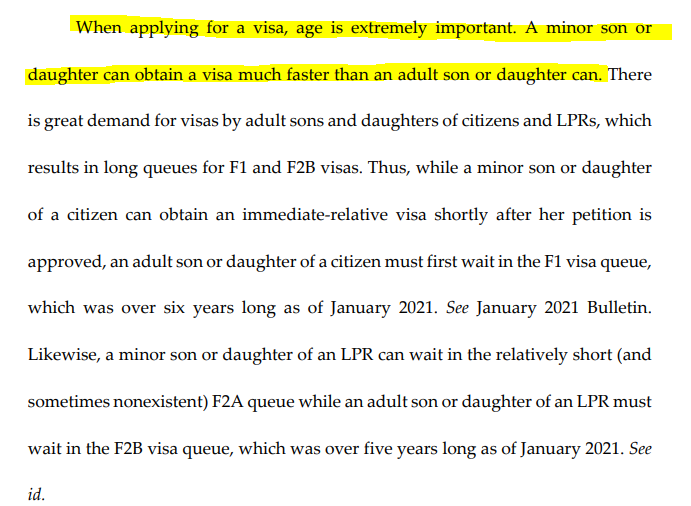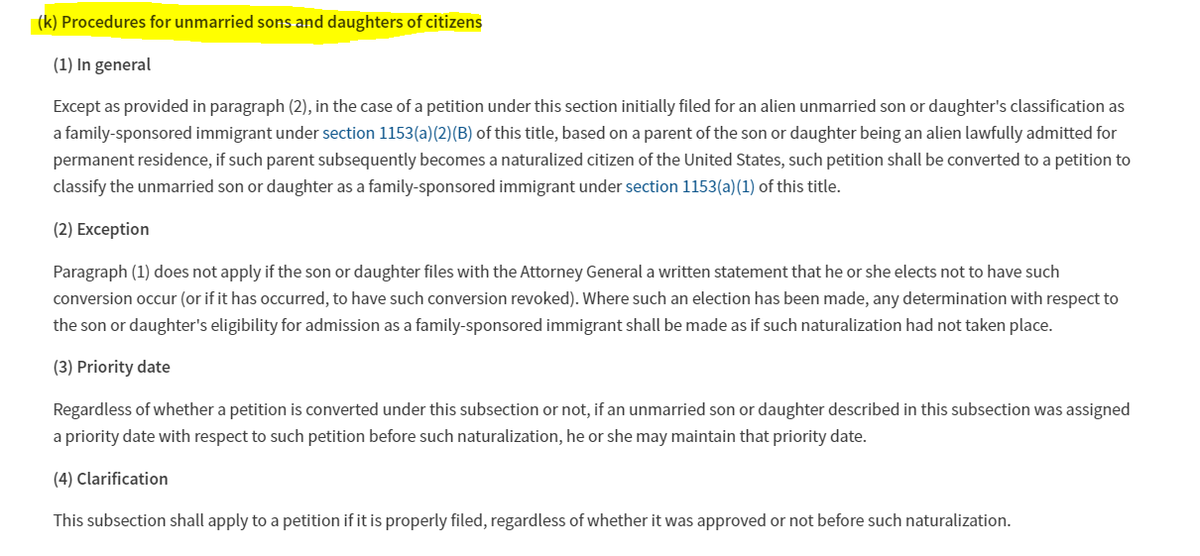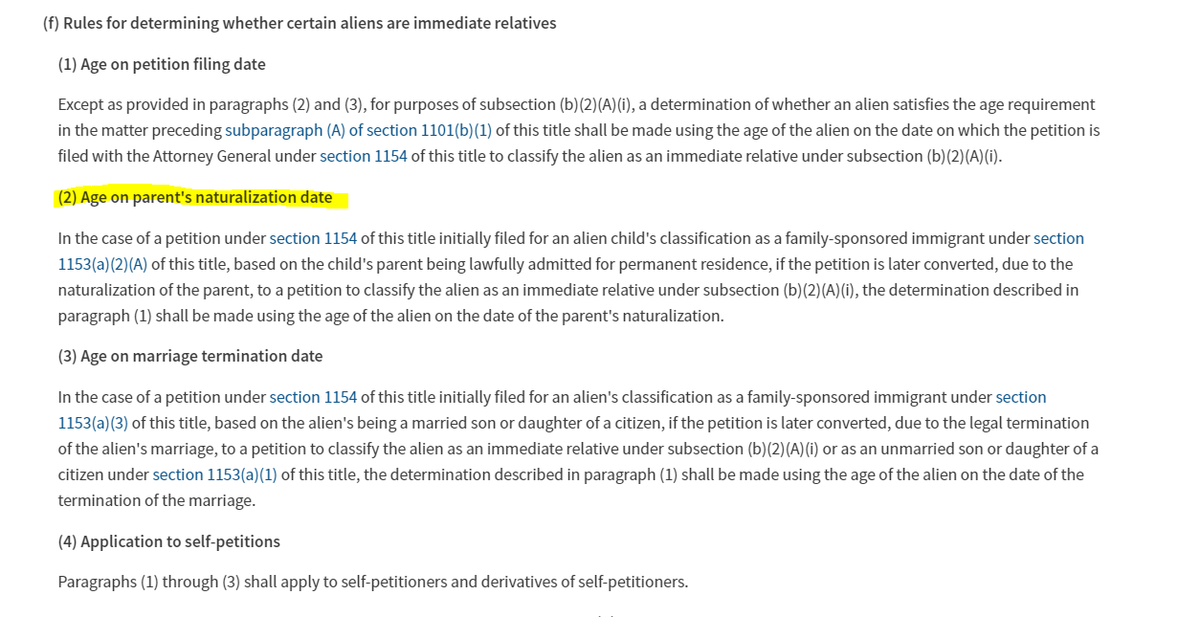
Judge Katzmann, extraordinary 2nd Cir. judge, died yesterday. As my tribute to his judicial career, here's a #WilenskyOnStyle thread from one of his last published opinions. It's a masterful display of reader-friendly writing, creating order from statutory chaos. /1
If you see the phrase "statutory chaos" and think "must be an immigration case" . . . you're right! Here's the opinion. /2 ca2.uscourts.gov/decisions/isys…
The case is about whether someone whose parent naturalized while she was in the middle of seeking an immigration visa is entitled to have her age backdated, so that she benefits from a statutory provision making visas quicker to obtain if you're the minor child of a citizen. /4
Right off the bat, Judge Katzmann does something useful: He describes both (1) the legal holding and (2) the "here's what it means in this case" holding. That's helpful for the attorney who needs to know what to tell his client right away! /5 

I tried to think of ways to show you the complexity of the immigration provisions that Katzmann analyzes in this opinion, so you can appreciate the difficulty of the writer's task. /6
But he is pulling from provisions buried in 3 different sections of the 8 U.S.C., across 40 pages of statutory text, and I couldn't easily show you that, so I'll just tell you . . . it's a lot. /7
That's why this set of bullet points is so remarkable. They're positively elegant. And unless you know that this material was scattered across different sections that do different things, it's hard to appreciate the beauty of this list. /8 

Once he's walked through all of the very detailed statutory text, Judge Katzmann helpfully provides this summation. /9 

One problem I sometimes see when a legal writer digs into some thorny text, doctrine, or set of facts is this: They get so caught up in the details that they forget to explain why it all matters; that deprives the reader of important context. Not Judge Katzmann: /10 

Something that students in particular struggle with is knowing when the reader needs to know things like the history of a statute. Here's a great example of when we *do* need the history to understand what the current text is supposed to be doing. /11 



Here Judge Katzmann displays a really useful tool in the writer's toolbox: Repeating key information. Readers have limited memory. So it's fine - helpful even! - to repeat important and complex information at important moments in the discussion. /12 



Then, at the end of a lengthy discussion of the statutory provisions, Judge Katzmann sums up the key points. And he uses bullet points again, to make his summation especially reader-friendly. And that makes it easy for him to tee up the precise issue in the case. /13 

Notice how those 4 bullet points are culled from deep within 3 different statutory provisions? They come from 1151, 1153, and 1154. / 14 

To help you appreciate the complexity, I've dug down to the specific provisions and highlighted them here. /15 







And then Judge Katzmann pulls together the key principles that emerge from all of this text, and sets up a nice, parallel list with the consequences for the facts of this case. /16 

The entire opinion is really just a great illustration of how to impose structure on a mess. /17
Judge Katzmann wrote the book - literally! - on legislative history. So when he writes about it, he writes with authority. /19 global.oup.com/academic/produ…
Deepest condolences to Judge Katzmann's family, friends, and colleagues. The bench and legal profession lost a remarkable jurist and writer. /fin
• • •
Missing some Tweet in this thread? You can try to
force a refresh









